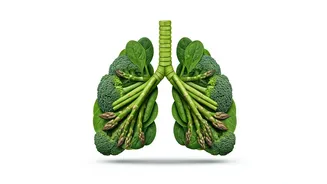Processed Meats Hazards
Processed meats, often a quick and easy meal choice, can present a threat to your respiratory health. These items frequently contain nitrates and nitrites
added as preservatives. When consumed, these additives can induce inflammation in the respiratory system, potentially increasing the risk of respiratory problems. Moreover, the high salt content in these meats can worsen symptoms for those suffering from asthma or other lung conditions. Therefore, limiting or avoiding processed meats will significantly benefit the respiratory health and is a crucial step towards safeguarding lung function.
Sugary Drinks' Impact
Sugar-laden beverages, common in many diets, also play a detrimental role in respiratory health. These drinks, including soda and sweetened juices, can stimulate inflammation, which exacerbates lung issues and can cause respiratory ailments. Moreover, the high sugar intake can contribute to weight gain, increasing the risk of obesity, and thus impairing lung function. Choosing water and other unsweetened beverages is essential for maintaining optimal lung health. Reducing the intake of sugary drinks is a crucial step to improve respiratory health and to enhance overall well-being.
Refined Carbs' Effects
Refined carbohydrates, like white bread and pastries, can lead to respiratory issues. These carbs are quickly broken down, causing a rapid rise in blood sugar, promoting inflammation throughout the body, including the lungs. Frequent consumption can increase the risk of asthma and chronic obstructive pulmonary disease (COPD). Opting for whole grains, which are digested more slowly and offer more nutrients, is a great choice to minimize inflammation and maintain healthy lungs. Switching from refined carbohydrates is an excellent approach for supporting respiratory health.
Salty Foods' Role
Excessive salt intake is another factor that can undermine lung health. Consuming too much salt can cause fluid retention, adding stress to the respiratory system and making breathing more difficult, particularly for people with asthma or COPD. Salt-rich foods can trigger inflammation in the airways, intensifying breathing problems. Being mindful of sodium levels and choosing low-sodium alternatives can alleviate these problems. Incorporating moderation regarding salt can play a vital role in preserving healthy lung function and improving the comfort of breathing.
Dairy's Respiratory Influence
Dairy products can impact respiratory health, specifically for individuals who are sensitive to them. Although not universally harmful, dairy products have been known to cause an increase in mucus production in some people, leading to a feeling of congestion and difficulty breathing. People with asthma and allergies may find that dairy products exacerbate their symptoms. It's crucial to pay attention to your body's response to dairy. If you feel increased congestion, consider reducing or eliminating dairy products to see if your respiratory health improves. Adjusting your diet and keeping a close eye on your body's response can substantially boost your respiratory health.
Fried Foods' Detriments
Fried foods often contain high levels of trans fats, which can cause significant damage to your lungs. These unhealthy fats can lead to inflammation and oxidative stress, which can worsen respiratory conditions and increase the risk of chronic lung diseases. The process of frying itself can generate harmful compounds that irritate the lungs. Opting for healthier cooking methods, such as baking, grilling, or steaming, can help you maintain better lung function and reduce the exposure to harmful compounds. Making these simple swaps can have a noticeable and positive impact on your respiratory health.
Alcohol and Lungs
Alcohol consumption can negatively affect the lungs, particularly with excessive intake. It can impair the immune system, making you more susceptible to respiratory infections, and weaken the body's natural defenses against pathogens, potentially leading to pneumonia and other respiratory illnesses. Moreover, alcohol can irritate the lining of the airways and cause inflammation. Moderate alcohol consumption can often be tolerated, but excessive drinking should be avoided to protect your lungs and maintain overall health. Be mindful of your alcohol intake and its potential effects on your respiratory health to ensure a stronger and healthier respiratory system.





















